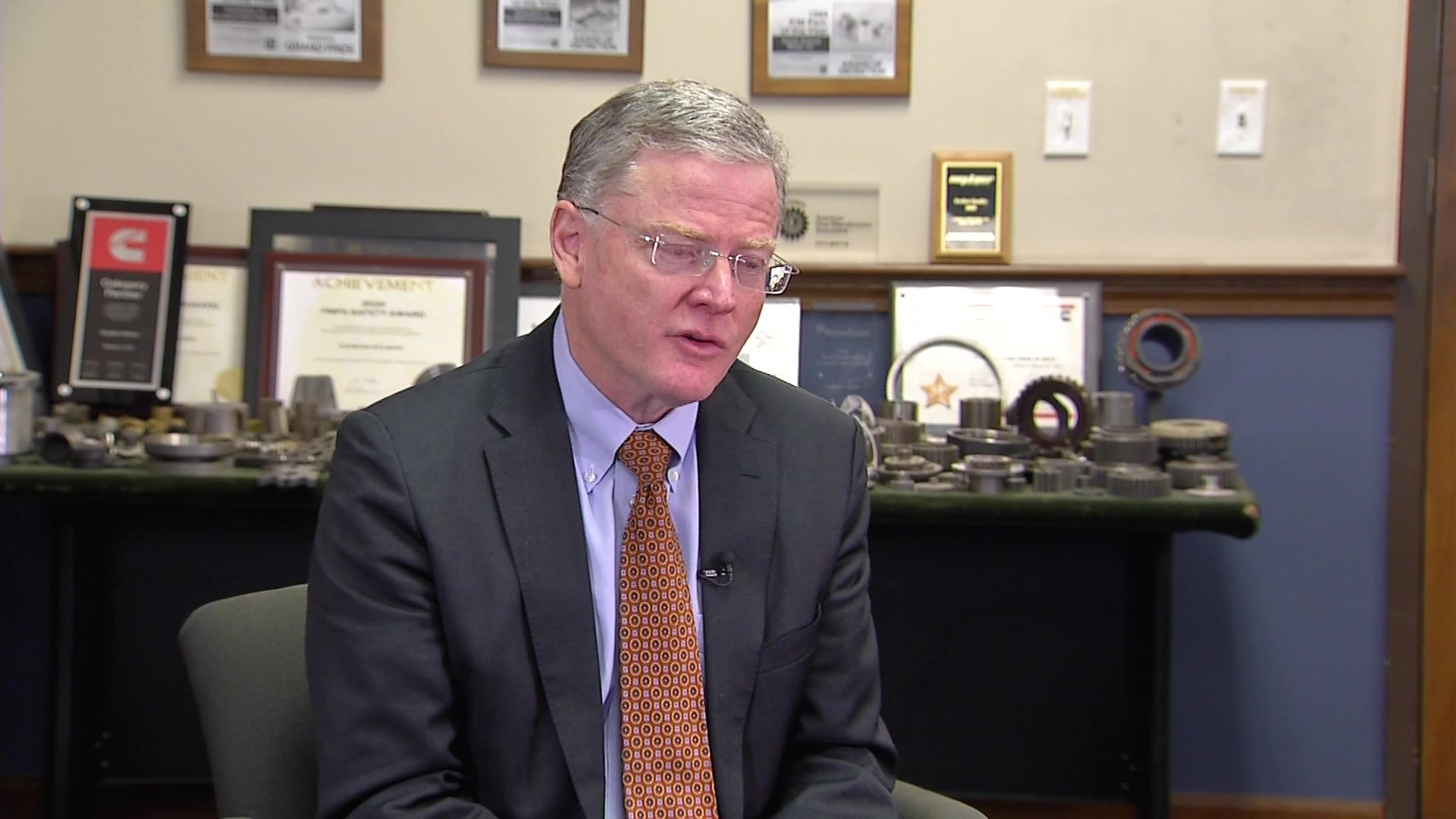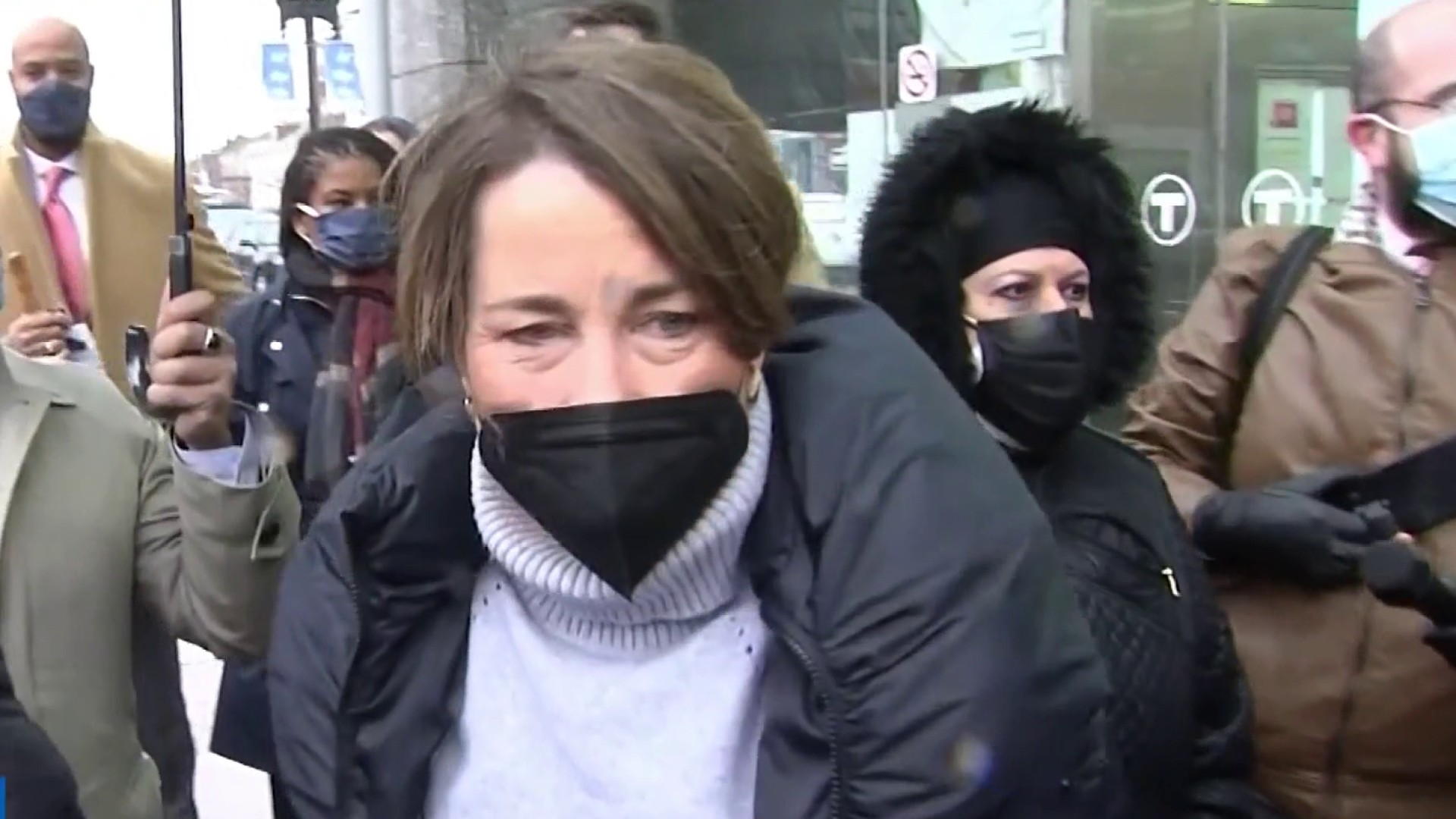Who are you again?
That's the takeaway message from a statewide poll of 504 registered voters early in this election year.
The poll conducted by the MassINC Polling Group was in the field from Jan. 18 to Jan. 20, so there's months for candidates and voters to get to know each other before the September primaries. Right now, however, the numbers show a big disconnect.
More than half of those surveyed in phone interviews have never heard of the four declared candidates for governor.
Get New England news, weather forecasts and entertainment stories to your inbox. Sign up for NECN newsletters.
At 48%, Democrat Maura Healey, who through two terms as attorney general is more well-known than her rivals, held a big lead among likely Democratic primary voters over Sen. Sonia Chang-Diaz (12%) and Harvard professor Danielle Allen (3%). Still, 38% of respondents, when presented with that trio, said they either didn't know, wouldn't vote, or preferred someone else.
Former Boston City Councilor Annissa Essaibi-George is not surprised to see Healey‘s significant lead. She says, “She has a state wide presence already as the Attorney General. I think she’s just generally very well liked across the Commonwealth.”
And while many chalk the results solely up to name recognition, MassINC Polling Group President Steve Koczela said, "There’s no guarantee that candidates will become better known and there are many recent examples where candidates have not become better known as the election approaches."
Chang Diaz has a progressive Boston constituency to tap into. It could be more challenging for Allen a political neophyte. But Essaibi-George said it is still early.
"I’m sure she’s coming together with her team and looking at those numbers… to see where there’s room for growth," she added.
Then there's that "someone else." If that someone else were former Boston Mayor Marty Walsh, then 32% of likely primary voters would take Walsh, who is not a candidate, over Healey (31%). While frequently describing his affection for his home state, Walsh says he loves his current federal posting as U.S. labor secretary.
"No, I'm not running for governor of Massachusetts," Walsh told CNN's Wolf Blitzer this month.
The Democratic State Committee (DSC) on Jan. 22 adopted rules for its nominating convention, which is planned for June 3 and June 4 in Worcester. To be eligible for the party's convention endorsement, candidates had to file a notice of their intention to seek office with the DSC by 5 p.m. Friday, or present to the committee a petition for endorsement containing the signatures of 500 delegates by 5 p.m. on Tuesday, April 22, 2022.
More on the Massachusetts Governor's Race
Republican Gov. Charlie Baker has opted against seeking a third term and Healey's praise of his State of The Commonwealth address last week generated interest.
Among those polled, 49% said Baker's endorsement of a candidate would make them more likely to vote for that person, compared to 21% who said they would be more likely to vote for a candidate endorsed by New York Rep. Alexandria Ocasio-Cortez. And in a nod to the state's block of unenrolled voters who don't identify with either major political party, 26% said the next governor should be more liberal than Baker, 23% said more conservative and 45% said "about the same as Charlie Baker."
"It is indicative I think of the warmth that Democratic primary voters feel towards Charlie Baker," Koczela said.
Sponsored by the group Policy for Progress, the poll also included questions about education and rent control.
It found 49% oppose letting local governments pursue rent control policies, with 41% in support. Seventy-five percent support using federal stimulus money to help school districts offer one-on-one or small group tutoring. And 70% support state leaders doing more to racially integrate public schools.
In the race for attorney general, the numbers are favorable for another former City of Boston official. With 63% of respondents taking a pass on the question, former City Councilor Andrea Campbell, who raised her visibility in last year's mayoral race, drew 31% support compared to just 3 % for labor attorney Shannon Liss-Riordan and 2% for 2018 Democratic nominee for lieutenant governor Quentin Palfrey as party insiders gear up for get-to-know-you winter caucuses. Campbell has not yet announced a decision on whether she will run, but filed her intent to seek the office with the Democratic Party on Friday.
Only 25% of likely primary voters expressed a preference between the two candidates running to succeed state Auditor Suzannne Bump. In that race, it's an early dead heat between Sen. Diana DiZoglio at 13% and Chris Dempsey, a former state transportation official and transit advocate, at 12%.
Four Democrats running for lieutenant governor split up the 35% of respondents with a preference among that field, with Salem Mayor Kim Driscoll at 10%, and 5% each for Rep. Tami Gouveia and Sens. Adam Hinds and Eric Lesser. Candidate Bret Bero, a businessman, was not listed as a choice in the question.
Fifty-seven percent of the voters surveyed said they didn't know which primary - Democrat or Republican - they would pull a ballot for this September, or refused to answer that question.
As for an Independent candidate - those that have tried have not had good luck but some wonder if this year could provide an opening.
"The Republican platform has become so unpalatable for a lot of Independents that they would like somebody more in the Charlie Baker lane," Koczela said.
Unenrolled voters will likely play the biggest role in determining the next governor.
The poll's margin of error was plus or minus 4.4%.



